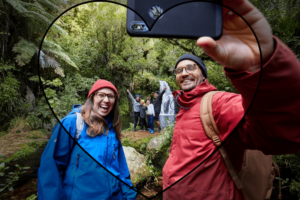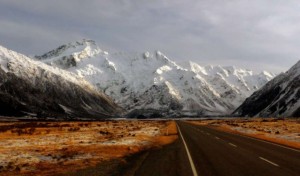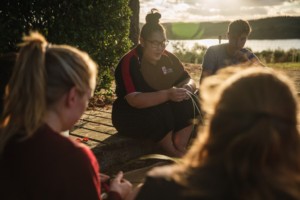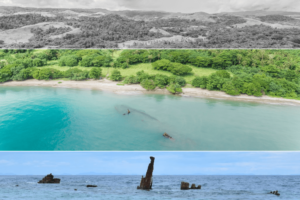How New Zealand’s Tiaki Promise advances regenerative travel & tourism
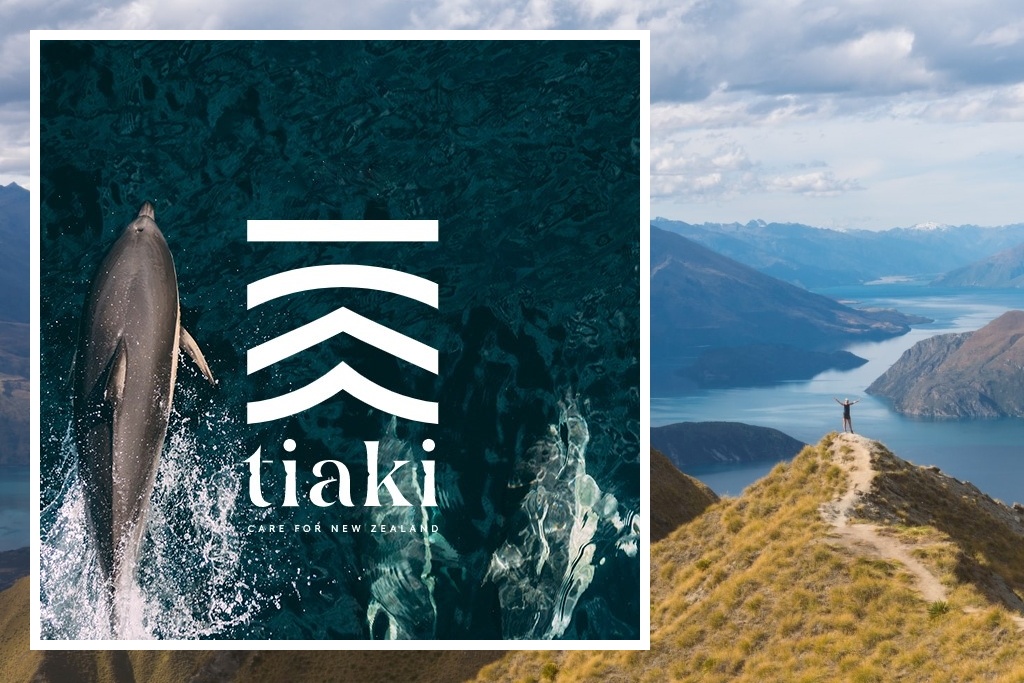
Independent researcher Bronwyn Hutchison takes a look at New Zealand’s destination care pledge, the Tiaki Promise, and its potential for advancing regenerative travel & tourism. It’s a “Good Tourism” Insight.
[Thanks to Regina Scheyvens for inviting Ms Hutchison to write a “GT” Insight.]
The COVID-19 pandemic has wreaked havoc on domestic and international tourism worldwide. But tourism has been wreaking its own havoc on the environment and host communities across the planet for decades. Despite years of sustainable development talk, tourism has continued to be structured around sustaining growth ahead of respecting the environment and the priorities of host communities.
The pandemic has given host communities the opportunity to pause and express what it is they want from tourism. The answer is that it’s not all about more tourists.
To restore balance to tourism and recognise the interconnected realities of people and the planet we must appreciate that tourism is part of a complex system. A regenerative tourism approach does just that and New Zealand’s Tiaki Promise is a facilitating element of such a system.
What is regeneration and regenerative development?
Regeneration is the self-renewing process natural systems use to thrive and adapt long-term. Regenerative development, then, aims for flourishing human and environmental well-being that goes beyond sustaining the status quo.
Regenerative development replaces a linear way of thinking with a self-sustaining one. It is more proactive in establishing positive outcomes than sustainable development, which tends towards minimising negative outcomes. Regenerative development recognises the interrelatedness of humans with each other and the natural world and, critically, that humans are not the superior parts of the system.
Also see Susanne Becken & David Gillbanks’ “GT” Insight
“Regenerative tourism vs sustainable tourism: What’s the difference?”
When applying regenerative principles to tourism it is apparent that we need to reconsider how we frame tourism and its priorities to reflect this understanding. However, tourism is a complex system made up of many interacting parts that have qualitative values.
Enduring change is neither quick nor easy.
How to change a system
What is required to change a system is a change in the paradigm from which the system comes; a change in the mindset that determines its purpose and priorities. Regenerative tourism thus requires a change from viewing tourism as an extractive system — taking everything it can from host environments and communities — to a regenerative system that enables flourishing.
Part of this reframing is no longer viewing tourists as consumers with special privileges. The social contract between visitors and hosts needs to be developed so that community needs and values are prioritised, including those of Indigenous peoples. One way to do this is through creating a common culture of social norms that are at once empowering and hopeful. This is what the Tiaki Promise seeks to do.
Also see David Gillbanks’
“Has ‘Future of Tourism’ failed host communities?”
What is the Tiaki Promise?
The Tiaki Promise was introduced into Aotearoa (New Zealand) in November 2018 by seven organisations: Air New Zealand, the Department of Conservation, Local Government New Zealand, New Zealand Maori Tourism, Tourism Holdings Ltd, Tourism Industry Aotearoa, and Tourism New Zealand. It was largely a response to complaints by residents about the bad behaviour of tourists — particularly freedom campers disrespecting the environment and self-drive tourists involved in road accidents — and perceptions of overtourism in some places.
Tiaki means to care for people and place. The Tiaki Promise is a commitment to care for New Zealand now and for future generations.
The Tiaki Promise is one of a number of destination pledges recently introduced to positively influence tourist behaviour. This type of common cause culture facilitates systems health by creating a positive, values-based connection that encourages long-term behavioural change. From a systems approach, the Tiaki Promise alters tourists’ inner paradigms of purpose and reorders the priorities of tourism system stakeholders so that both align with the needs and wants of host communities.
Broken promise?
The Tiaki Promise is aspirational. It is an example of how one might facilitate regenerative tourism at the community level. But systemic regeneration must take place at all levels. And it is clear there is a long way to go.
Also see Josie Major’s “GT” Insight
“How to change an iconic travel & tourism experience … for good”
In March 2021, Air New Zealand’s chief environmental advisor Sir Jonathan Porritt posited his support for increasing the cost of international flights to pay for greenhouse gas emissions. Sir Porritt was reported as saying that he is in favour of discouraging irresponsible air travel, that he does not believe the number of international visitors to New Zealand can simply continue to grow without limits, and that the aviation industry urgently needs to reduce its emissions.
Less than two weeks later, it was reported that Air New Zealand will not only restore flights to its network of nine Australian cities but also add a new Australian destination. Continued growth means a continuing increase in emissions, more tourists, and more environmental damage. While an emissions tax can help fund climate change projects it cannot change the fact that air travel is a significant contributor to climate change in the first place. There is also Air New Zealand’s 10-hour sightseeing flight to see the Aurora Australis; a prime example of irresponsible air travel and another indication of the lack of any real commitment to environmental issues.
The Tiaki Promise can facilitate the altering of inner paradigms and feed into a regenerative tourism system, but even a healthy system is susceptible to intrusion from stronger forces. Thus the ‘I do’ of accepting the Tiaki Promise must become ‘we do’, including corporations and governments. For it is only by acting together that the potential human and environmental flourishing through a regenerative tourism system can be a reality.
What do you think? Share a short anecdote or comment below. Or write a deeper “GT” Insight. The “Good Tourism” Blog welcomes diversity of opinion and perspective about travel & tourism because travel & tourism is everyone’s business.
Featured image (top of post): Tiaki Promise dolphin (from Tiaki Promise website) inset within a view from Roy’s Peak, Wanaka, New Zealand (by Jasper van der Meij (CC0) via Unsplash).
About the author

Bronwyn Hutchison is an independent researcher who is completing her masters on regenerative tourism through Massey University in New Zealand. Ms Hutchison has a particular interest in Indigenous tourism, and the role of tourism in gender empowerment.


